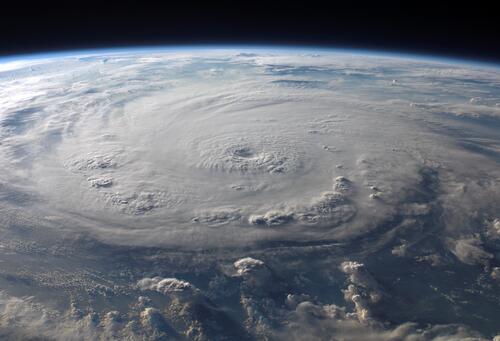
Preparing For Henri!
Everyone got the alert, another hurricane is on its way and it’s heading directly for the northeast. Are you ready for more damage? From New York to Maine, people are preparing for power outages and flooding due to storm surges, heavy rain, and high winds. For parts of Long Island along with Connecticut, hurricane alerts have been issued, while New York, Massachusetts, and other states have just issued tropical storm warnings. But do you know what hurricanes are?
Hurricanes are spiraling storms that form over warm ocean water. Originally, hurricanes start as tropical disturbances where numerous rain clouds collect over warm waters. Tropical disturbances then become tropical depressions when the clouds turn into thunderstorms and spin at approximately 62 kilometers per hour (km/h). The tropical depression is then classified as a tropical storm once the storms are rotating faster than 62 km/h. At a speed of 119 km/h and greater, the tropical storm becomes a hurricane.
Ranging from categories 1 to 5, hurricanes have different wind speeds. Category 1 hurricanes are the least dangerous, with category 5 hurricanes being the most dangerous. Category 1 hurricanes have wind speeds going from 119 km/h to 153 km/h. Category 2 hurricanes’ wind speeds range from 154 km/h to 177 km/h. Category 3 hurricanes go from 178 km/h to 208 km/h. The wind speeds of category 4 hurricanes are 209 km/h to 251km/h. Lastly, category 5 hurricanes, the most dangerous, have wind speeds greater than 252 km/h. That's as fast as a skydiver going headfirst! Now that you know what a hurricane is, we should go over how to stay safe while Henri is happening.
There are a few things suggested for you and your family to do to stay safe during Henri and any other hurricane you encounter. Staying in your house during Henri is first, it will make sure you aren’t putting yourself or anyone else in unnecessary danger. Having a generator prepared with extra gas is important for any storm as power companies are saying to expect outages. Always make sure to keep your generator outside the house! Speaking of extra, you might want to go get groceries before this storm hits, food is always important. Potted plants, patio umbrellas, trampolines should be taken down, and any tents should be taken into your house. Making a plan for leaving your house and getting to safety is another important step; you want to know where to go and how to get there in case you need to evacuate your house. Along with that plan, making a kit with flashlights, a radio, cash, some food and water, and extra clothes would be very helpful if you have to leave your house for a shelter in a hurry.
Now that you know what to do when Henri hits the Northeast, let’s talk about how hurricanes and other extreme weather forms are getting more extreme because of climate change. “The Natural Climate Assessment finds that the number of heatwaves, heavy downpours, and major hurricanes has increased in the United States, and the strength of these events has increased, too.” This is concerning news, as these storms become more frequent and stronger, more damage is being done and fear is being instilled in more people. Over the last 21 years, more than 100 extreme weather events have occurred that caused at least a billion dollars worth of damage. I’m not just talking about Sandy, Katrina, or Maria; I’m talking about many of the ones that don’t get as much attention on tv, like the 20+ tornadoes and severe thunderstorms that have hit in the Midwest.
As climate change continues to affect the Earth, we are getting warmer ocean temperatures and higher sea levels which results in more powerful hurricanes and tropical storms like Henri. Hurricanes need warm water, warm water fuels them to keep moving towards land. With climate change, we are giving hurricanes more of that warm water it needs. The oceans are getting warmer because of the greenhouse gasses that are trapping energy from the sun and transferring that energy to the ocean in the form of heat. The rise of sea levels has also affected hurricanes. With rising sea levels, we get higher storm surges which lead to more destruction. Which is something we definitely don’t want. The average global sea level has already risen more than 6 inches since 1900, and it doesn’t look like it’s stopping anytime soon. Trying to undo our destruction is all we can try now. So now that you know more about how climate change is affecting extreme weather, what are you going to do to help?
Sources:
- https://www.chubb.com/us-en/individuals-families/resources/10-steps-to-p...
- https://weather.com/news/news/2021-08-20-tropical-storm-henri-connecticu...
- https://www.c2es.org/content/extreme-weather-and-climate-change/
- https://www.epa.gov/climate-indicators/oceans
- https://www.edf.org/climate/how-climate-change-makes-hurricanes-more-des...
- https://www.nasa.gov/audience/forstudents/k-4/stories/nasa-knows/what-ar...
- https://www.nhc.noaa.gov/text/refresh/MIATCPAT3+shtml/211440.shtml
- https://www.nhc.noaa.gov/graphics_at3.shtml?key_messages

